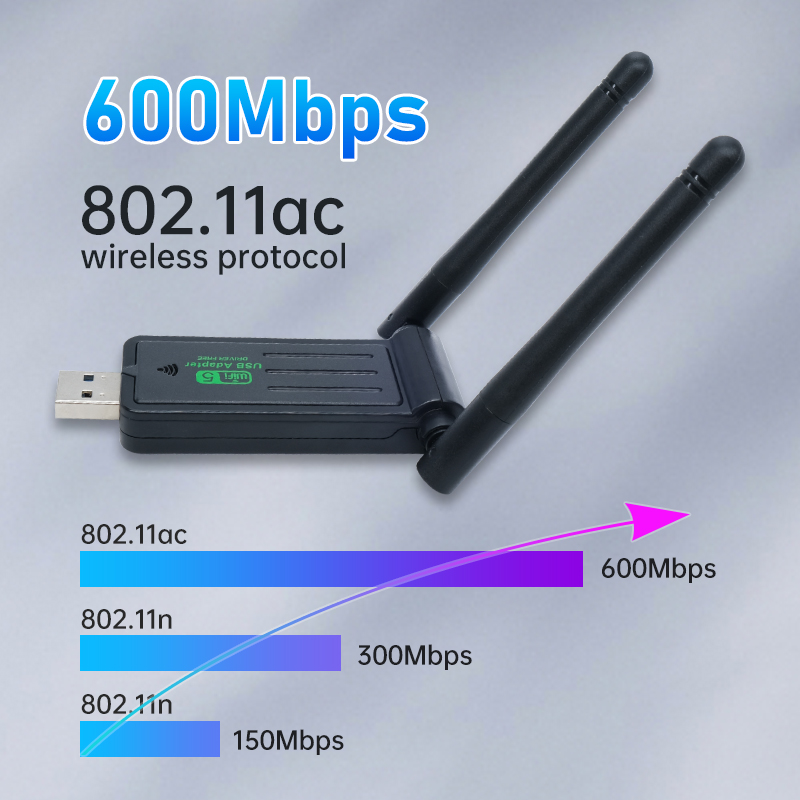WiFi dongles, also known as WiFi adapters or receivers, are small devices that enable devices without built-in WiFi capabilities to connect to wireless networks. They are commonly used with desktop computers, laptops, gaming consoles, and other devices that lack integrated WiFi functionality.

Exploring Dual-Band WiFi
Dual-band WiFi refers to the capability of a router or access point to broadcast signals on both the 2.4GHz and 5GHz frequency bands simultaneously. The 2.4GHz band provides better coverage over longer distances, while the 5GHz band offers faster speeds and less interference.
Can WiFi Dongles support dual-band WiFi?
Yes, many modern WiFi dongles support dual-band WiFi networks. These dongles come equipped with dual-band technology and can connect to both 2.4GHz and 5GHz WiFi networks. They are designed to provide users with the flexibility to connect to different networks and take advantage of the benefits offered by each frequency band.
Benefits of Using Dual-Band WiFi Dongles
Using a dual-band WiFi dongle offers several advantages:
1.Enhanced performance: Dual-band dongles allow users to connect to the less congested 5GHz band, resulting in faster and more reliable connections.
2.Reduced interference: The 5GHz band is less crowded than the 2.4GHz band as it has more available channels, reducing the likelihood of interference from neighboring devices.
3.Compatibility with modern routers: Many modern routers support dual-band technology, and using a dual-band dongle ensures compatibility and optimal performance.
Finding the Right Dual-Band WiFi Dongle
When selecting a dual-band WiFi dongle, consider the following factors:
1.Compatibility: Ensure that the dongle is compatible with your device and operating system.
2.Speed and range: Look for a dongle that offers high-speed and extended range capabilities for optimal performance.
3.USB type: Check if the dongle requires USB 2.0 or USB 3.0 for compatibility with your device's USB ports.
The Future of WiFi Dongles
As WiFi technology continues to evolve, so do WiFi dongles. With the growing demand for faster and more reliable connections, the market is witnessing the development of advanced dongles capable of supporting even higher speeds and newer WiFi standards.
Conclusion
Dual-band WiFi dongles provide users with the convenience and flexibility to connect to both 2.4GHz and 5GHz WiFi networks. They offer improved performance, reduced interference, and compatibility with modern routers. When selecting a dual-band dongle, ensure compatibility and consider factors such as speed, range, and USB type. With constant advancements in WiFi technology, the future of WiFi dongles looks promising.
 Trolink Joint With Tuya to Make Iot Benefit Every Family
Trolink Joint With Tuya to Make Iot Benefit Every Family
 5 Key Indicators for WiFi Module Selection You Have to Know !
5 Key Indicators for WiFi Module Selection You Have to Know !
 IOT module is the brain of smart products
IOT module is the brain of smart products
 What is the signal coverage range of the WiFi module chip?
What is the signal coverage range of the WiFi module chip?